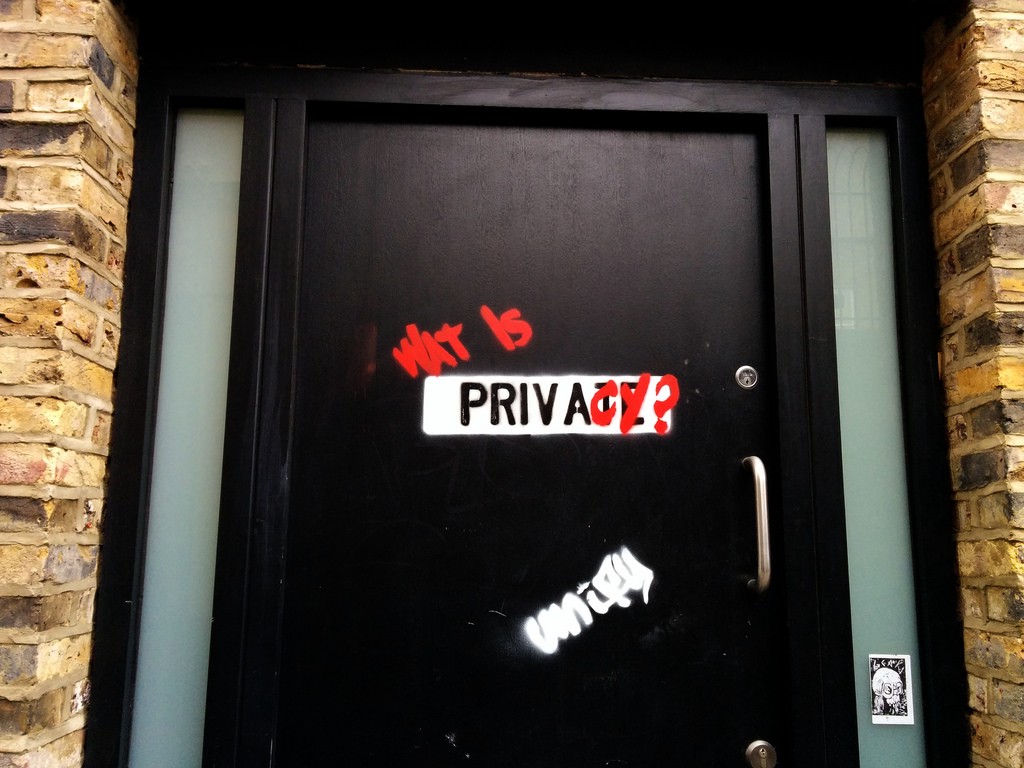I guess I should come clean straight from the start and start this piece by saying that I’m very sensitive when it comes to privacy issues.

Ok, maybe I’m not your super-paranoid-privacy-geek (or so I think), but I use Signal (and, btw, I’d invite you to use it too!), I’m moving off of Gmail and ever since I started seeing spookily accurate ads on Google / Facebook, I’ve been getting more and more careful about what I share online.
Sadly, privacy is becoming less and less valued. We are sacrificing a small piece of it every day, as we come to use more and more “free” apps.
“Free”… who are we kidding? We all know that in this world nothing is for free… But if not, how do we pay?
In today’s advertising-driven world, we pay for “Free” by sharing our personal data. It has become a form of a digital “currency” and it allows us to offer our personal information — and in return, we get entertainment and comfort.
Whether I like this or not, I have to accept that it is now a fact of life. But not one I cannot fight against!
Every time I’m in a group of people, I try to bring up the topic, one way or another, so I can — at the very least, and if all else fails — raise awareness.
It’s proven kinda hard to convince people that THEIR privacy is important to THEM, but a paradigm I like to use has helped. I compare what happens inside your home (physical world) and what happens in all your online interactions (virtual world).
Almost everyone I’ve spoken to agrees that there are some things that happen inside their home that they would not like anyone to be able to see / know / hear about.
Commonly, this will involve e.g. getting out of the shower, intimate moments with one’s family, waking up(!), information/documents/photos they want to keep private (in the safety of their home) and generally just moments where you’d like to be left alone with no camera or spotlight on you.
At that point — during that discussion — I will point out that a lot of those experiences, interactions and documents have now moved online, into the virtual world, so I ask the simple question:
If you agree everyone needs some private space in the physical world, wouldn’t you say it’s fair to have that same private space as we’re moving everything into the virtual world?
So far, so good.
By the way, with this question, I am also usually able to convince those who counter privacy-related discussions with the, somewhat naive — if you ask me — question:
“Why, what do YOU have to hide?”
In any case, let me bring this back on topic, because the real reason why I started writing this down — was a bigger question that arises from this discussion.
But let me first, explain how I got there…
Couple of weeks ago, I was having another instance of my privacy “sermon” going on, and all was going smoothly. We went through all the above and, as a first step they could take, I suggested that they switch their IM app from WhatsApp/Viber/Facebook messenger/etc to Signal.
And the discussion went like this:
Friend: “Oh, come on… Another messaging app?!?”
Me: “Yeah… I know…” Friend: “Come on… really? What’s so special about this one ?”
Me: “Well, it’s the only one you can actually trust. Nobody can break in and steal your messages!”
Friend: “…”
Me: “Come on, just go to the App store now, I’ll show you…”
Friend: “…”
Me: “I won’t answer your IM messages in any other app!”
Friend: “…ok…”
Friend: “But wait… when you say ‘nobody’, does that include the police?”
Me: “Yup! Nobody!”
Me: “… Hey, why do you care about the police?”
Friend: “Well, you know… this discussion is actually starting to remind me another philosophical discussion I read once…”
Me: “!!!!! … Go on!!”
Friend: “ok, so it goes something like this… In a country where you — who clearly cares so much about privacy — and you can make up your own laws… Would you allow for someone to construct an unbreakable door? ”
Me: “… !!!”
I am not sure if you can see it just yet, but, what my friend had just done was to completely turn the tables on me and make me think (hard!) about where one draws the line with privacy.
If there is a line altogether, that is…
It took a couple of good sips of G&T and a couple of moments of silence to come back from this one…
You see, what my friend meant was that allowing for this kind of “unbreakable doors” to exist, in its essence, implies “unbreakable” privacy. It implies that you allow your people to lock themselves up somewhere, where nobody could ever enter unless they give their permission.
And, yes, nobody, includes the police! … just as my friend asked…
And this raises a pretty interesting issue, oh, dear reader. If your people are allowed to have these “unbreakable” doors, how are you to even identify (let alone prevent) some (horrible) crimes that might be taking place behind them?
Equally, there is a counter-argument. If you choose to not offer each citizen some safe space to protect their privacy(i.e. if you don’t allow unbreakable doors), how are you to protect your people from the next governor or dictator (or president for that matter), who will decide to go after the immigrants and then the jews and then the gay people and then the… and then the… and then the… and have the police raid everyone’s homes and find all the terrible offenders who are residing in hiding?
Which of the two crimes is bigger?
There you have it then fellow privacy advocates… Have you already made up your own mind?